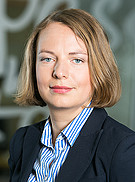|
Dear clients and
cooperation partners,
In our previous newsflashes regarding upcoming amendments to the
Competition Law (“Law”), we have already
reviewed the topic of powers of officials from the Competition Council
(“Council”) within the scope of case
investigation; the plan is to significantly expand their powers, allowing
the Council to require information from credit institutions and electronic
communications operators. Although the amendments to the Law have not yet
come into force, there is still an issue regarding limits on Council
officials’ powers during investigations; this issue had existed for
several years but again became topical when the Council decided to find an
administrative violation and to impose a penalty for failure to provide
information during a visit by Council officials.
The Council imposed a fine of
EUR 3,000 on a wholesaler because the company representatives
indirectly refused to provide information requested by Council
officials1. In this case, Council officials arrived at the
company to investigate a supervision case which in essence focuses on
assessment of the market situation and conditions that are topical and
important for the relevant market, but not as part of an investigation of a
competition violation committed by a particular market participant.
During the visit, Council officials asked
for access to e-mail correspondence in relation to distribution of
detergents to the main retail chains in Latvia. The correspondence was
located in the computers of company employees. The company representatives
indicated that in a supervision case Council officials were not entitled to
all the information in the e-mails. In the Council’s opinion this
amounted to a rejection of their officials’ request for information.
However, the company representatives indicated that during an inspection in
a market supervision case for officials to ask for access to all electronic
mail in the computers was not a proportionate measure but on the contrary
was unwarranted. In these situations officials must define and detail
sufficiently clearly the limits of the information that they wish to find
out during the inspection. The company representatives did not actually
refuse to give the information requested by Council officials during their
visit, but they did ask officials to specify the information requested by
referring to the principle of proportionality in assessing the
reasonableness of limiting a private party’s rights in the context of
a benefit (potentially) obtained by the public.
Therefore two basic questions follow from
the situation described, namely:
- Does the amount of the information
provided have to be proportionate to the nature of the case under
investigation – in other words, are Council officials entitled to request
and receive an equal amount of information while investigating a violation
and during research in the scope of a supervision case?
- What degree of detail of description
(specification) should be provided by Council officials regarding
information requested so that company representatives would be obligated to
provide this information?
According to Council practice2
and conclusions from decisions establishing administrative violations, the
Council considers that its officials’ powers are sufficiently broad
and that in essence when Council officials arrive to carry out an
investigation, company representatives must maximally cooperate by
providing not only information requested by Council officials but also
other information that in the opinion of company representatives might
relate to the particular case.
In parallel to this Council position, the
Law determines limits on the scope of information that Council officials
may request. In particular, the Council can claim information needed to
perform given tasks. Although this rule is not clear enough and has
not been widely studied especially in the context of limiting the powers of
Council officials in Latvia, it is undeniably clear that a direct link must
exist between information requested and the case under investigation.
Moreover, whether requesting a particular amount of information is justified
by the nature of the case under investigation should be assessed, that is,
whether the information is requested within the scope of a supervision case
or a violation case. It is equally important to assess the importance of
the information requested for investigating the particular case.
Likewise this situation has also prompted
discussion in relation to the reasonableness of applying procedural norms.
In the particular case, the Council punished a company for failure to
provide information, as well as for failure to fulfil lawful requests by
Council officials, although the failure to fulfil lawful requests was in
fact non-provision of information. Thus the Council punished the company
for one and the same action under two sections of the Latvian
Administrative Violation Code (“LAVC”); in
general this contradicts the principles of administrative violation
proceedings.
In addition, to hold a person
administratively liable, all legal components of the administrative
violation must be detected in the person’s activities, and only after
that does the institution have grounds to apply an administrative penalty.
If a single component of the violation is missing, there are no grounds to
hold the person administratively liable3. In administrative
cases in competition law, the presumption of innocence applies. This means
that the Council has to prove a violation; moreover, any doubts about guilt
that cannot be eliminated must be assessed in favour of the offender.
Unfortunately, these aspects did not earn
sufficient attention when the Council decided to find an administrative
violation and impose a penalty.
It is absolutely clear that the present
practice must change. This and many other issues related to limits on the
powers of Council officials while investigating violations and supervision
cases will remain topical and always worth discussion. So if Council
officials arrive at your company to carry out an investigation in the form
of an inspection or visit, it is important to carefully consider the limits
of activities allowed, and in particular to assess the possible risks of
procedural violations.
SORAINEN competition law experts are
always ready to provide consultations, as well as to represent your
interests during Council inspections and in court.
1 The Council decision (in
Latvian) is available here.
2 See, for example, Council decision No. E02-42 of 21 July 2011 (in Latvian).
3 See, for example, a judgment of 10 April
2012 of the Administrative Regional Court in case
No. A42760509. |


